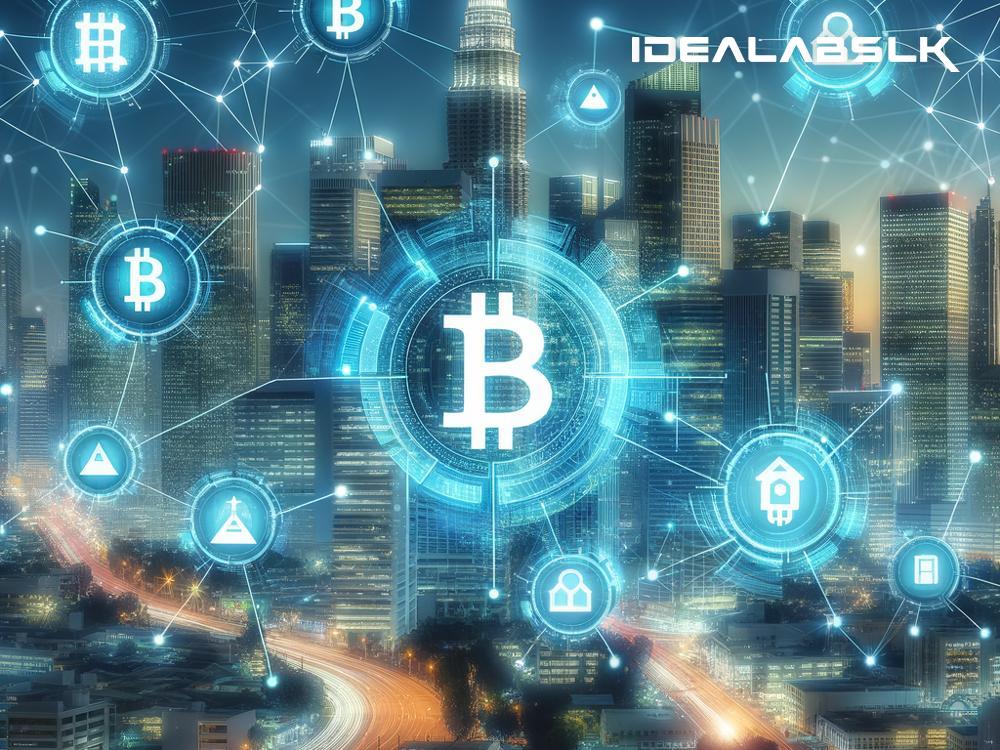Unlocking the Future of Property Transactions: How Blockchain Reimagines Real Estate
In today's fast-paced digital world, technology is not just an accessory but a fundamental aspect of our daily lives, stretching its roots deep into various sectors. One such industry on the brink of a significant tech revolution is real estate. The introduction of blockchain technology into this age-old sector promises to transform it into a more transparent, efficient, and accessible realm. Let's embark on a journey to understand how blockchain is making buying, selling, and investing in real estate smarter than ever before.
What is Blockchain, Anyway?
Before diving deeper, let's break down what blockchain technology is in the simplest terms. Imagine a digital ledger that's accessible to everyone but cannot be tampered with or altered in any way. This ledger records every transaction that has ever happened in chronological order. The special thing about blockchain is that this ledger isn't stored in a single location or controlled by a single entity. Instead, it is spread across a network of computers, making it highly secure and transparent.
Transforming Real Estate Transactions
Traditionally, buying or selling property involves numerous steps, parties, documents, and, unfortunately, a lot of waiting time. It's a process fraught with inefficiencies, opaque procedures, and opportunities for fraud. Enter blockchain, and the scenario begins to change drastically.
1. Streamlining Processes
Blockchain can simplify the real estate transaction process by reducing the need for paper-based record keeping and the involvement of intermediaries such as lawyers and brokers. This means that the endless paperwork, the back-and-forth between parties, and the hefty fees we're all too familiar with could become things of the past.
2. Enhancing Transparency and Security
One of the standout features of blockchain is its transparency. Every transaction recorded on a blockchain is visible to all participants, making the history of a property easily verifiable and accessible. This visibility significantly reduces the risk of fraud, making transactions more secure. Moreover, since records on a blockchain cannot be altered, the integrity of real estate data is preserved, providing a higher level of trust among parties.
3. Making Real Estate More Accessible
Traditionally, investing in real estate requires a significant amount of capital, limiting access to a relatively small group of investors. However, blockchain introduces the concept of tokenization, which involves dividing property into shareable digital tokens. This method not only makes it possible for investors to buy shares in properties with smaller amounts of money but also opens the door for a global pool of investors, enhancing liquidity and potentially increasing property values.
4. Speeding Up Transactions
Real estate transactions are notoriously slow, primarily due to the manual verification of documents and the involvement of multiple intermediaries. Blockchain technology can automate these processes through smart contracts - self-executing contracts with the terms directly written into code. This automation can drastically speed up transactions, reducing the time frame from months to just days or even minutes.
A Glimpse into the Future
Imagine being able to buy a piece of property instantly using a smartphone, without hefty broker fees, without waiting weeks for bank approvals, and with the peace of mind that your transaction is secure and transparent. This is the future blockchain promises in real estate.
However, it's crucial to note that while the potential of blockchain in real estate is enormous, there are still hurdles to overcome. Regulatory approvals, widespread adoption, and technological advancements are needed to unlock its full potential. Yet, the momentum is building, and the transformative effects of blockchain are beginning to take shape.
The Road Ahead
As we stand on the cusp of a new era in real estate, the promise of blockchain looms large, signaling a shift towards a more efficient, transparent, and inclusive market. The road ahead is undoubtedly filled with challenges, but the journey promises to be a revolutionary one. For buyers, sellers, and investors, the integration of blockchain into real estate offers a chance to partake in a smarter, faster, and more secure market.
In closing, the marriage between blockchain and real estate is not just a fleeting trend but a profound shift towards democratizing property transactions. As we navigate this evolving landscape, staying informed and open-minded will be key to leveraging the opportunities this technology presents. The future of buying, selling, and investing in real estate is being rewritten, and it spells a world of possibilities.

